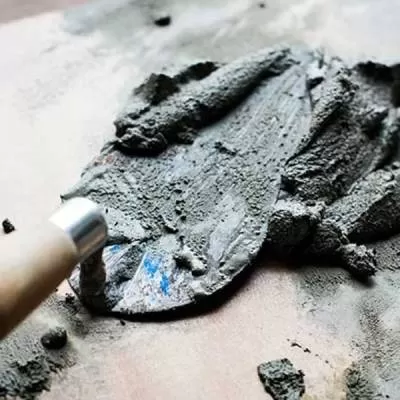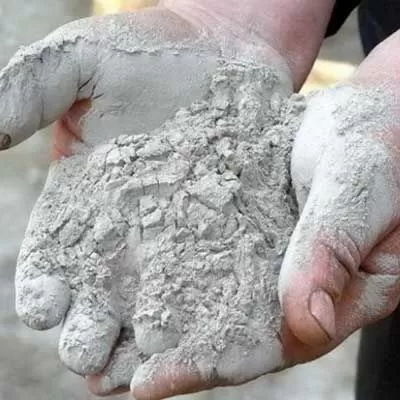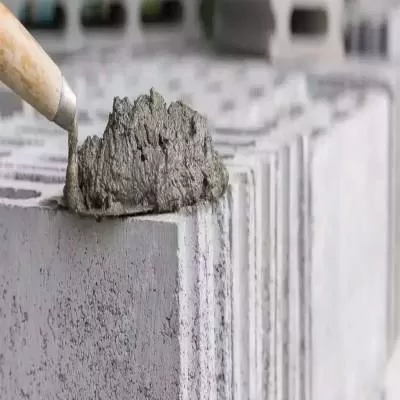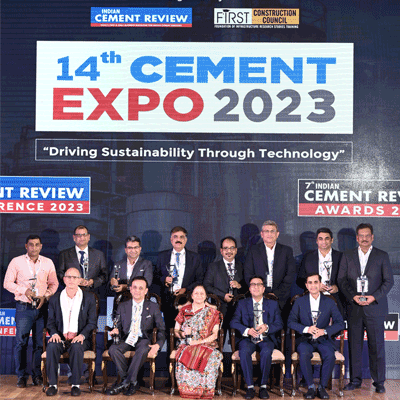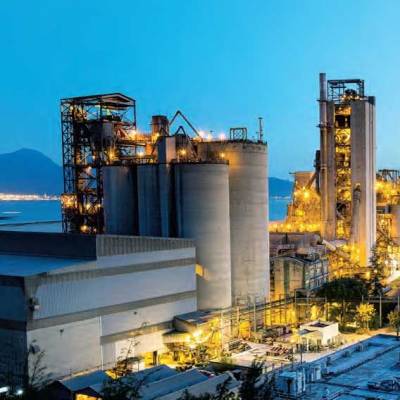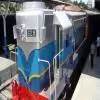- Home
- Building Material
- Cement
- A Revamped Motorway
A Revamped Motorway
An important transport link between Spo Paulo and Campos do Jordpo, Vale do Parafba and Rio de Janeiro, the SP-070, also known as the Ayrton Senna Highway, is also the main access route to Guarulhos International Airport. The highway, since 2009, has been operated by Ecopistas.
Recently, the 25-cm cement-bound base course lying under the asphalt was severely damaged due to the movement of around 125,000 vehicles on a 35-km stretch between the 11 km and 46 km marks - which extends from Spo Paulo in an easterly direction.
Optimum solution: Cold recycling in-situ
Both Ecopistas and Fremix Engenharia e ComTrcio, the company contracted to rehabilitate the road surface, decided to use recycled material with foamed bitumen, produced in Wirtgen´s mobile cold recycling mixing plant KMA 220.
The contractors also needed to meet one strict condition: On working days, the construction work on this vital transport route was restricted to an overnight eight-hour window from 9 pm to 5 am, since even the most minor closures for roadworks can cause massive traffic hold-ups. The tight timeframe compelled Wirtgen to opt for cold recycling technology, allowed the pavement to be repaired section by section before being immediately reopened to traffic.
Clearing the way
The 10-cm asphalt surface course and the underlying 25-cm cement stabilisation layer were milled out separately and conveyed onto trucks. For this task, Fremix used two of Wirtgen´s large milling machines, the W 1900 and the W 200.
The reclaimed material was transported by truck to a mixing location set up in close proximity to the site. Here it was crushed using a state-of-the-art Kleemann MC 110 Z EVO track-mounted jaw crusher to ensure that the grain size did not exceed 20 mm and that the material had an optimal granulometric composition.
Recycling reclaimed material on site
Using two Wirtgen mobile cold recycling mixing plants KMA 220, the reclaimed material was then recycled into a top quality mix with foamed bitumen (BSM). KMA 220 is easy to transport and can be quickly set up on site. As a result, the two plants were quickly installed next to the motorway, greatly reducing the number of material transfers.
Juliano Gewehr, Product Specialist, Ciber Equipamentos Rodovißrios, explains: ¨The cold recycling mixing plant allows us to re-use the reclaimed material. We optimise it by adding binders and supplementary materials in order to deliver a pavement with a long service life and optimum material properties.¨
Precision metering of binders
Loudon International and its engineers were in charge of the mix design and quality monitoring. They, along with the technicians from JBA Engineering and Consulting Ltd, supported preliminary investigations and project execution. Using the results of preliminary tests, the quality of the foamed bitumen and the optimum composition of the mix - obtained in combination with the Wirtgen laboratory-scale twin-shaft compulsory mixer WLM 30 - could be precisely identified before construction work commenced. The formula finally selected comprised 1 per cent hydrated lime and 2 per cent bitumen.
The hot bitumen is foamed in the expansion chamber of the KMA 220 by adding air and water. This produces foamed bitumen, which is 20 times the volume of the original product. The foamed bitumen is combined with the hydrated lime and the reclaimed material to produce a homogeneous mix. The recycled reclaimed material was paved in two layers: The 20 cm-thick first layer was compacted by both a 14-t Hamm 3414 compactor and a 9-t Hamm HD 90 tandem roller, and then the HD 90 completed the compaction of the 13 cm-thick second layer on its own. The V÷gele SUPER 1300-3 tracked paver was used to apply an unusually thin 2-cm surface course. A Hamm GRW 280 rubber wheeled roller took care of the final compaction of the asphalt mix.
Assured returnssa
Ten different Wirtgen Group machines were involved in this challenging project. ôOn a construction site of this size, where the rehabilitation of the various sections had to be completed within one day, we couldn´t afford to take any risks. That´s why we decided to use the Wirtgen Group´s reliable machines and its state-of-the-art technologies and application processesö, says Valmir Bonfim Site Manager for Fremix.
Alvaro Rodrigo Pinheiro, Engineering Manager, Ecopistas, the concessionaire, is impressed by Wirtgen´s cold recycling technology and sees it as an excellent, eco-friendly solution for the structural repair of the Brazilian road network. Based on the excellent results obtained, the company is planning to make further investments in this technology in the coming years.
(Communication by the management of the company)
The SP-070, is another motorway in Brazil where the time-saving, cost-efficient and eco-friendly benefits of the cold recycling process have been put to the test. An important transport link between Spo Paulo and Campos do Jordpo, Vale do Parafba and Rio de Janeiro, the SP-070, also known as the Ayrton Senna Highway, is also the main access route to Guarulhos International Airport. The highway, since 2009, has been operated by Ecopistas. Recently, the 25-cm cement-bound base course lying under the asphalt was severely damaged due to the movement of around 125,000 vehicles on a 35-km stretch between the 11 km and 46 km marks - which extends from Spo Paulo in an easterly direction. Optimum solution: Cold recycling in-situ Both Ecopistas and Fremix Engenharia e ComTrcio, the company contracted to rehabilitate the road surface, decided to use recycled material with foamed bitumen, produced in Wirtgen´s mobile cold recycling mixing plant KMA 220. The contractors also needed to meet one strict condition: On working days, the construction work on this vital transport route was restricted to an overnight eight-hour window from 9 pm to 5 am, since even the most minor closures for roadworks can cause massive traffic hold-ups. The tight timeframe compelled Wirtgen to opt for cold recycling technology, allowed the pavement to be repaired section by section before being immediately reopened to traffic. Clearing the way The 10-cm asphalt surface course and the underlying 25-cm cement stabilisation layer were milled out separately and conveyed onto trucks. For this task, Fremix used two of Wirtgen´s large milling machines, the W 1900 and the W 200. The reclaimed material was transported by truck to a mixing location set up in close proximity to the site. Here it was crushed using a state-of-the-art Kleemann MC 110 Z EVO track-mounted jaw crusher to ensure that the grain size did not exceed 20 mm and that the material had an optimal granulometric composition. Recycling reclaimed material on site Using two Wirtgen mobile cold recycling mixing plants KMA 220, the reclaimed material was then recycled into a top quality mix with foamed bitumen (BSM). KMA 220 is easy to transport and can be quickly set up on site. As a result, the two plants were quickly installed next to the motorway, greatly reducing the number of material transfers. Juliano Gewehr, Product Specialist, Ciber Equipamentos Rodovißrios, explains: ¨The cold recycling mixing plant allows us to re-use the reclaimed material. We optimise it by adding binders and supplementary materials in order to deliver a pavement with a long service life and optimum material properties.¨ Precision metering of binders Loudon International and its engineers were in charge of the mix design and quality monitoring. They, along with the technicians from JBA Engineering and Consulting Ltd, supported preliminary investigations and project execution. Using the results of preliminary tests, the quality of the foamed bitumen and the optimum composition of the mix - obtained in combination with the Wirtgen laboratory-scale twin-shaft compulsory mixer WLM 30 - could be precisely identified before construction work commenced. The formula finally selected comprised 1 per cent hydrated lime and 2 per cent bitumen. The hot bitumen is foamed in the expansion chamber of the KMA 220 by adding air and water. This produces foamed bitumen, which is 20 times the volume of the original product. The foamed bitumen is combined with the hydrated lime and the reclaimed material to produce a homogeneous mix. The recycled reclaimed material was paved in two layers: The 20 cm-thick first layer was compacted by both a 14-t Hamm 3414 compactor and a 9-t Hamm HD 90 tandem roller, and then the HD 90 completed the compaction of the 13 cm-thick second layer on its own. The V÷gele SUPER 1300-3 tracked paver was used to apply an unusually thin 2-cm surface course. A Hamm GRW 280 rubber wheeled roller took care of the final compaction of the asphalt mix. Assured returnssa Ten different Wirtgen Group machines were involved in this challenging project. ôOn a construction site of this size, where the rehabilitation of the various sections had to be completed within one day, we couldn´t afford to take any risks. That´s why we decided to use the Wirtgen Group´s reliable machines and its state-of-the-art technologies and application processesö, says Valmir Bonfim Site Manager for Fremix. Alvaro Rodrigo Pinheiro, Engineering Manager, Ecopistas, the concessionaire, is impressed by Wirtgen´s cold recycling technology and sees it as an excellent, eco-friendly solution for the structural repair of the Brazilian road network. Based on the excellent results obtained, the company is planning to make further investments in this technology in the coming years. (Communication by the management of the company)


